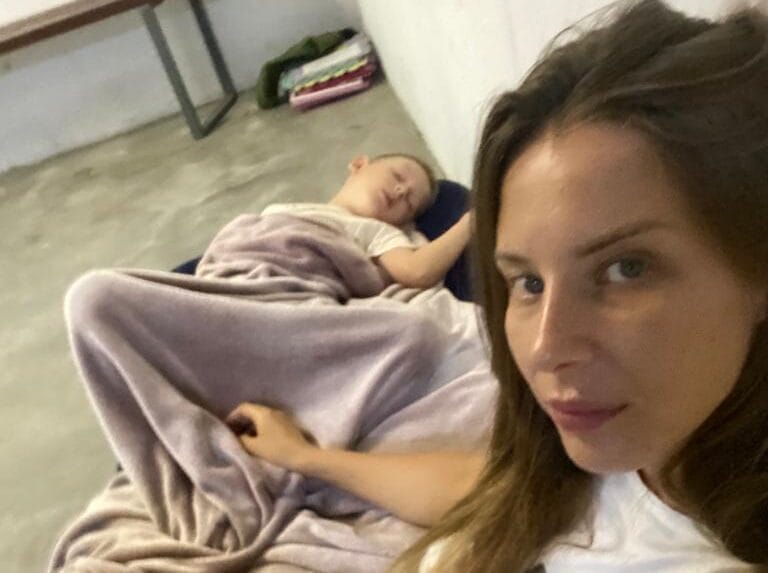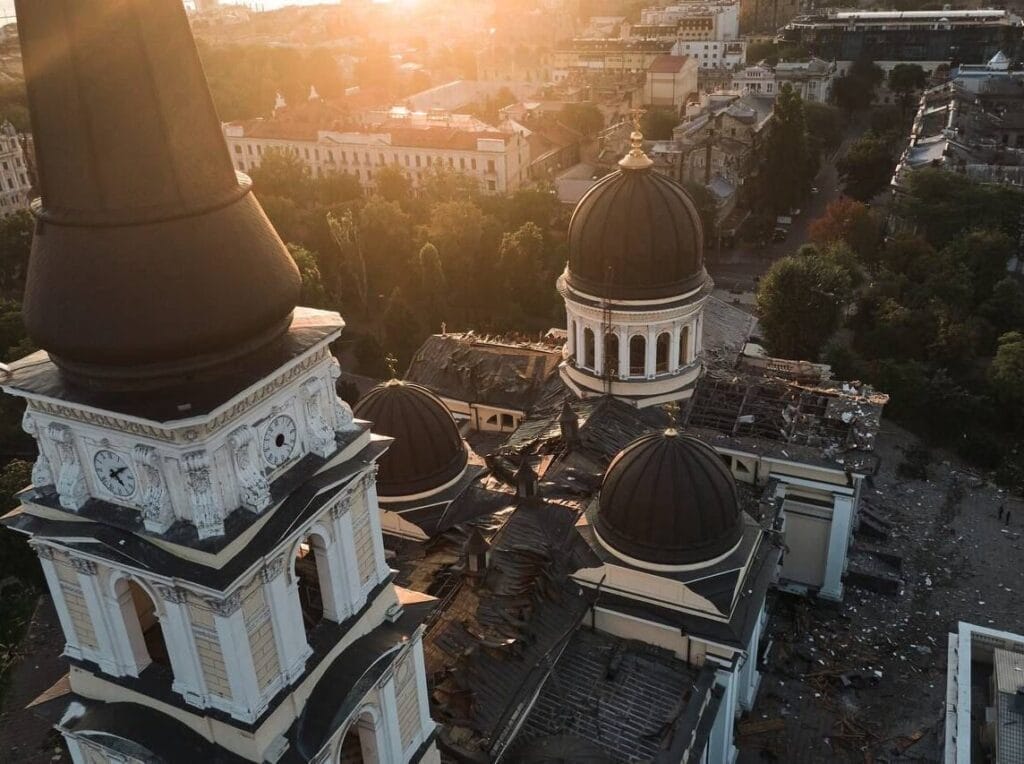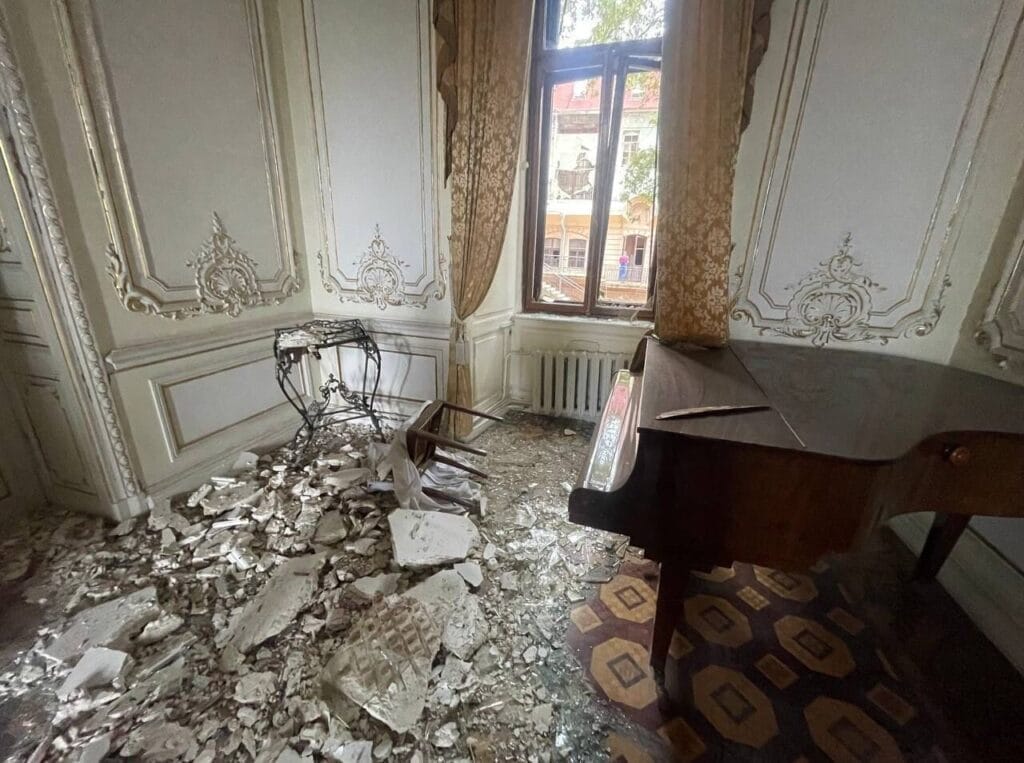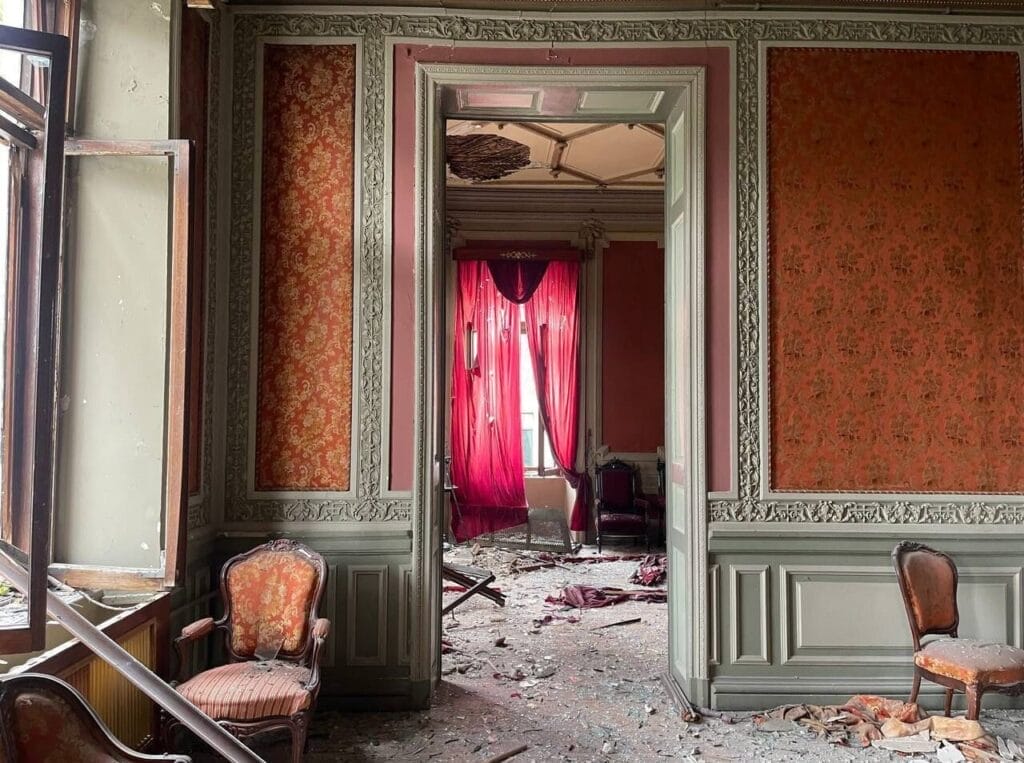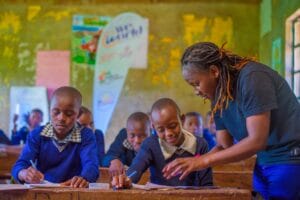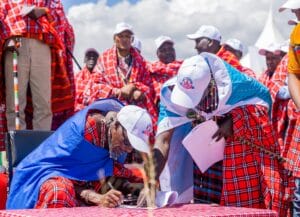
Oksana, a former WeWorld staff member in Moldova, tells her ordeal as bombing continues in Odesa
Odesa is my hometown, I came back to live here in May. At the beginning, the bombings were ok, it was only every 3 to 4 days and they weren’t too heavy as they were far from the city centre and civilian infrastructures.
However, 3 weeks ago, everything changed: The Russians started bombing residential buildings.
Everyone is shocked, scared, we are living a psychological breakdown together with the tearing down of everything we hold dear.
I live on the 17th floor of a 22-storey building. Each night from 2 to 5 am I go to the shelter with my 5 year-old son H. We go to the garage and we cannot sleep. The sound is deafening, every 5 minutes we can hear the noise of a missile or drone hitting the city.
Mothers tell the children it’s a game. I tell my son that the Ukrainian military soldiers are like Marvel superheroes and they are protecting us from the attacks. If my son asks me if someone is dead I say “no, we are winning, don’t worry. Maybe someone got injured but our doctors will take care of them”.
Attacks on residential buildings
We have been experiencing huge attacks on very large buildings that have more than 20 floors. A missile fell 1 km from my home destroying a 4-storey building, and four 20-storey residential, all civilian targets. In these buildings there were small schools, a children’s museum, one of the best eye clinics in Odessa - where I would take my son - and a supermarket as well as residential homes. On the other side of the street one of Odessa’s Universities, the Politecnico, was hit by the bomb wave and every window was blown, now it is under reconstruction and cannot be used.
The Russians have started mixing rockets with drones and ultra-speed rockets that they launch from Crimea – it takes these rockets only 5 minutes to get here and our defence system has difficulties in intercepting them. Our military defence used to be able to block 90% of attacks, today this percentage is down to 50%.
All this started the day after Russia left the ‘grain deal’. They started massive attacks on civilian infrastructure and grain storages. Every night since last week, more than 20 missiles and 20 shaheds (drones – it is common to use specific names for armaments) hit Odessa.
A couple of nights ago the port of Odessa was attacked, it is our centre, full of historical and cultural buildings. One of the missiles didn’t hit the port but a bank and also damaged the Chinese Embassy next to it. During the night bombing on the 23rd of July, Russia damaged 61 civil houses and 146 apartments.
We want to safeguard our memory and our future
It’s like a knife in the back. The centre is our cultural and historical memory and future, we want to safeguard it. At the beginning of the war UNESCO recognized the centre of Odessa as cultural heritage to be protected, where are they now? What are they doing about it now that it is being bombed? That civilian infrastructure is being targeted?
A missile hit a Basilica in the city centre, destroyed it through the roof, it stands next to many residential buildings - all windows of these homes are blown. They even destroyed the house-museum dedicated to Lev Tolstoj, a Russian author known for “War and Peace”, ironic right? It was Lev Tolstoj’s country house, a unique place for its architecture and for the cultural significance, where citizens would go to take pictures on the day of their wedding or tourists would visit. Today it is completely destroyed.
Everything around it is destroyed, historical buildings that don’t have shelters and many of which cannot be rebuilt.
Yesterday, they even bombed Izmail, the calmest town in our region, there is nothing military, only nature but they have a port where ships from Romania come and go to export grain. They bombed the grain storages, 1 km from the Romanian border – with 15 drones and 12 missiles.
Since the beginning of the war 13 million people have left Ukraine. The people who stayed can be considered in two groups.
Everyone is tired but we still need help
Those who cannot leave because they do not have the resources and the means to travel, they don’t know a foreign language, they have no money, or they need to take care of an older relative who cannot travel. The second group is made up of the people who have businesses, who despite the many challenges and of course less profit, remain to keep the country going. If they leave, we will fall apart.
The first group of people are living in poverty and need support. Inflation and costs for basic goods are going up, since the start of the year prices have doubled and sometimes tripled. Among this group we can also find IDPs living in Odessa and coming mainly from Kherson, Dnipro and Zaporizhzhia.
We are exhausted and we know you are too, but please continue providing aid if you can. Ukrainians are very grateful for the support the EU is providing to civilian people. We understand that everyone is tired, but the situation in Ukraine is only getting worse so we ask you to continue supporting people. We know the winter will be even harder than the previous one.
This story is of one person, in one city, in one month. Women, men and children living in Ukraine have gone through more than 500 days of war since 24th February 2022.
WeWorld works in Ukraine since the start of the war, supporting IDPs and people living in poverty, especially women and children, the elderly and people with disabilities. WeWorld guarantees basic services for people affected by the war mainly in newly liberated areas, in rural and hard-to-reach areas, therefore in oblasts along the contract line.

